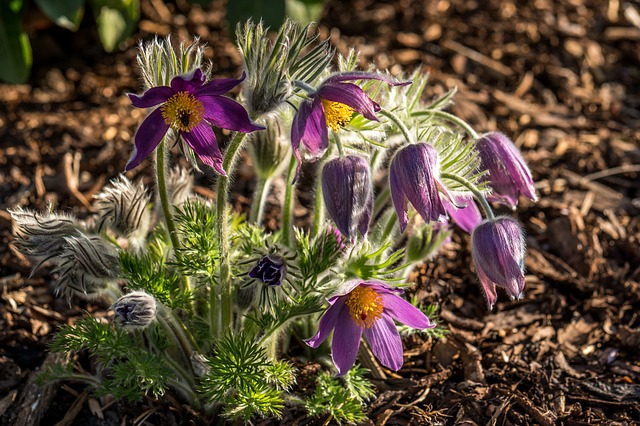 |  |  |  | - |
| - |  |  |
Pasqueflower
is a perennial plant with an upright stem and a long root. The plant is on average 5-40 cm tall. The whole plant is covered with hairs. The leaves are located on petioles and arranged in a rosette of roots. The flowers are solitary, large and, depending on the species, their own color. The plant blooms starting in April and continues into May.
Collect
Pasqueflower
carefully, not forgetting that the juice of the plant is poisonous and can cause skin burns. The plant is harvested during flowering.
Pasqueflower
is dried in a shady place by spreading the plant on sieves in a thin layer. After drying, the plant can be used no earlier than after three months, otherwise the plant will still retain its toxicity. The plant is stored in paper bags for no longer than three years.
It is important to know that all species of woodpeckers are included in the Red Book and their collection is prohibited.
Pasqueflower
contains anemonin, saponins, phytoncides, tannins and resins.
Medicinal significance
In official medicine, this plant is not used and its perspective is not considered.
In folk medicine, the most common uses are the forest
Pasqueflower
(Pulsatilla patens) and the meadow
Pasqueflower
(Pulsatilla pratensis). It is believed that it has an anti-inflammatory and antimicrobial effect, a sedative effect, it lowers arterial blood pressure, lowers breathing rhythm and pulse.
Decoction of flowers is used in case of infertility. In case of rheumatism, rub the painful places with the alcohol extract of this plant. A decoction of the plant is used to relieve pain in childbirth, treat insomnia and even as a remedy for impotence.
The plant is also used in homeopathy, but this website does not contain information about this deviation.
